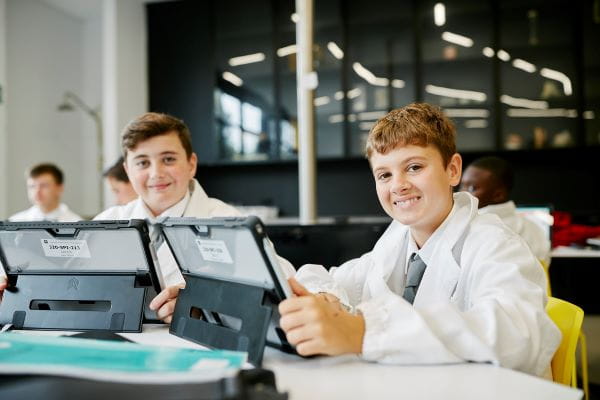Overview
Alignment with Be You Domains
-
Mentally Healthy Communities
-
Family Partnerships
-
Learning Resilience
-
Early Support
Alignment with Early Years Learning Framework (EYLF)
- Children have a strong sense of identity
- Children have a strong sense of wellbeing
Alignment with Australian Curriculum
- English
- Health and PE
- Humanities and Social Sciences
- Languages
- Mathematics
- Science
- Technologies
- The Arts
Target audience
- Early learning
- Primary school
- Secondary school
Target groups
- Individual
- Small group
- Whole class
- Whole school
Aims
Friendly Schools is a strengths-based social and emotional wellbeing and bullying prevention initiative for schools. The initiative aims to provide schools, teachers and families with evidence of the most effective ways to promote social and emotional wellbeing, and prevent, manage and respond to bullying behaviours. Friendly Schools also builds school leadership capacity to implement the initiative process. Toolkits are available to help inform school decision-making and to ensure strategies are relevant. Friendly Schools targets the whole school community, and helps schools to build their own capacity for change.Program theory
The Friendly Schools program uses the social ecological theory and family systems theories. Social ecological theory acknowledges that health risks are not direct outcomes of individual behaviours but emerge from complex interactions between young people and the contexts in which they live. The Friendly Schools intervention targets risk and protective factors at the individual, family, peer, classroom, school, online and community levels. Family systems theories emphasise the impact of functional and behavioural family patterns on the behaviour of individuals, and school-based efforts to address bullying and cyberbullying are therefore more successful when they engage with parents and families.Topics
The main topics covered in Friendly Schools include bullying, cyberbullying and social and emotional wellbeing. The initiative addresses the three dimensions of social and emotional wellbeing (emotional wellbeing, psychological wellbeing and social wellbeing) through five focus areas: self-awareness, self-management, social awareness, relationship skills and social decision-making.Cost
Program structure
The Friendly Schools initiative is designed as a staged process, where each stage builds upon the others. Friendly Schools builds the capacity of the whole-school community to address social and emotional wellbeing and bullying, works with families to improve understanding and self-efficacy to discuss bullying with their children, and provides learning resources and teaching support for students and their teachers. The Friendly Schools Implementation Road Map guides schools through their implementation journey, from getting ready to reviewing and sustaining outcomes. The Evidence for Practice is a guide to the implementation process, and provides information, strategies and resources from Australian schools.Instructor
Not provided
Instructor training
Three-day training for accredited external trainers; one-day training for school coordinating teams.Supporting resources or materials available with program
- Manual
- Online webinars
- Workbook
Other materials
Electronic filesOngoing support
Annual booster training sessions are available for instructors.Parent involvement
- Attend information sessions
- Attend program sessions with child
- Follow-up information provided after program
- Written information provided to parents
Origin of program
Australia
Telethon Kids Institute
Program authors
Telethon Kids Institute, Curtin University and Edith Cowan University
- Northern Entrance, Perth Children's Hospital, 15 Hospital Avenue,Nedlands WA 6009 Australia
Ratings
Summary of evidence factors
This is a summary of the evaluation or research study characteristics that contribute to the program’s evidence rating.
|
Positive impact on at least one outcome for children and/or young people?
The study reported positive outcomes. |
Yes |
|---|---|
|
Link between program description and theory of change
Theory of change refers to whether there was a comprehensive description and illustration of how and why a desired change is expected to happen in a particular context. |
Comprehensive |
|
Study design
Type of study design reported. |
Randomised control trial |
|
Independence
The degree to which the program authors were involved in the research. |
Semi |
Summary of implementation factors
This is a summary of the program’s characteristics that contribute to its implementation rating.
|
Feedback sought from participants
Participants enjoyed the program and understood its benefits. |
Yes |
|---|---|
|
Feedback sought from instructors
Instructors enjoyed the program and understood its benefits. |
Yes |
|
Groups program is not suitable for
Groups the program wouldn't be suitable for or that required further research to determine suitability. |
Not assessed |
|
Training provided during study
The model of training provided. |
Face to face, all instructors, in person |
|
Ongoing instructor support provided during study
Whether ongoing support is provided. |
Yes |
Context
This is a summary of the context in which the evidence for the program was established.
|
Study Participants
Pre school, primary school (Foundation to Year 6), secondary school (Years 7 to 12). |
Primary school Secondary school |
|---|---|
|
Country of Study/s
The location in which the evidence or research was conducted. |
Australia |
|
Location of Study/s in Australia
The state (or states) the program was assessed in Australia. |
WA |
|
Evaluation of program in culturally and linguistically diverse populations
Provider has included culturally and linguistically diverse people when assessing the program. |
No |
|
Evaluation of program in Aboriginal and Torres Strait Islander children and young people
Provider has included Aboriginal and Torres Strait Islander peoples when assessing the program. |
No |
|
Evaluation of program in low socioeconomic groups
Program has evaluated a diverse socio-economic population in their research. |
Yes |
|
Developmental based adaptations to program design and delivery
Shorter sessions for younger students or activities are adjusted for age appropriateness. |
No |
|
Evaluation of program in children and young people with disability and/or learning difference
Provider has included participants with a disability or learning difference when assessing the program. |
Yes |
Last updated: 24 February 2022
